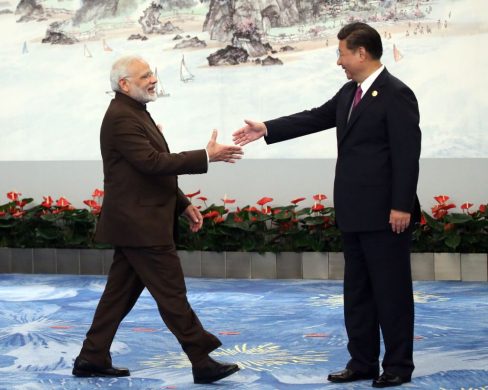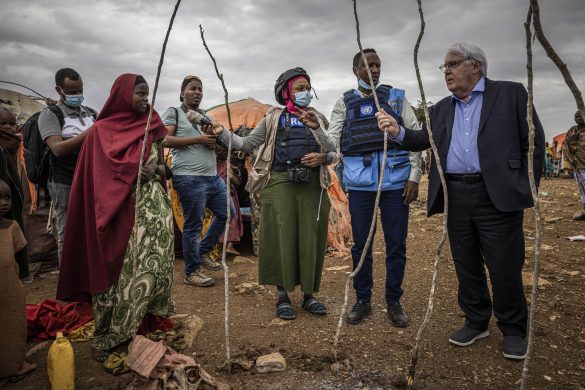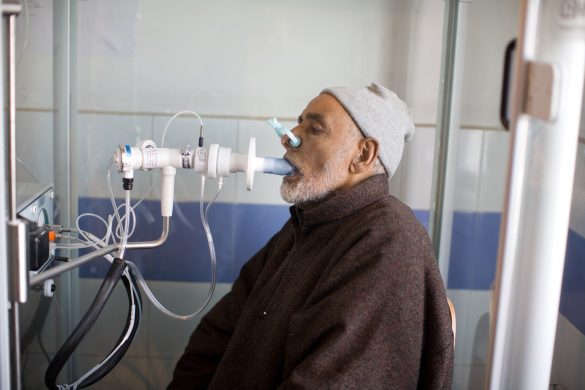I Sydasiens kastesamfund står de kasteløse bagerst når samfundets goder fordeles. Det samme gælder når jordskælv, oversvømmelser eller ødelæggende storme rammer. En ny rapport dokumenterer forskelsbehandlinger under og efter en række katastrofer.
To organisationer, International Dalit Solidarity Network (IDSN) og Dalit Watch – NCDHR, og EUs humanitære organisation ECHO lancerede den 28. januar rapporten Equality in aid: Addressing caste discrimination in humanitarian response, der dokumenterer at kasteløse og andre svage grupper får mindre hjælp når en katastrofe har ramt. Det skriver National Campaign on Dalit Human Rights (NCDHR) i en pressemeddelelse.
The South Asian region has always been particularly prone to natural disasters, be it in the form of floods, cyclones, droughts, earthquakes or landslides, and with climate change, these phenomena tend to strike with greater frequency and intensity.
Svage grupper rammes hårdest
Experience shows that those belonging to the most vulnerable and socially disadvantaged positions in society (along caste, religion, class, gender) systematically bear the brunt of these natural disasters.
This was again witnessed during the recent flash floods that devastated Uttarakhand or when Phailin cyclone struck the coast of Odisha.
The report is based on a comprehensive case study that was done by National Dalit Watch- National Campaign on Dalit Human Rights (NCDHR) in 2012. Based on case studies gathered from across South Asia, this pioneering report aims to ensure that all appropriate measures are taken to combat caste discrimination both in aid delivery and in Disaster Risk Reduction initiatives.
“The European Commission has demonstrated over the years how humanitarian initiatives can effectively address gaps and inequalities in vulnerability by ensuring that such initiatives specifically take into account, and are targeted to, the needs of excluded persons and groups”, notes Claus Sørensen, Director-General of the European Commission’s Humanitarian Aid and Civil Protection department (ECHO), in his foreword to the report.
“I would like to commend the International Dalit Solidarity Network for having identified clear recommendations for how to achieve this in the context of caste discrimination”.
Talrige eksempler
Numerous examples of caste discrimination in humanitarian response have been reported during these crises: Dalits regularly face problems when trying to register in relief camps; they often receive poorer and fewer relief goods; they are exploited to remove corpses or debris; their losses are less visible as ownership is not formally recognized; and they are rarely consulted when needs of affected communities are assessed.
“It is very critical and timely that the humanitarian stakeholders including the State ensure inclusive methods to address caste-based discrimination in Disaster Risk Reduction and explicitly recognise this phenomenon in Disaster Management legislation and policy, to prevent violation of human rights of Dalits”, said N. Paul Divakar of National Campaign on Dalit Human Rights (NCDHR).
The report recommends steps and tools to ensure that Dalits and similar groups are not excluded from disaster prevention and response including practical advice for humanitarian organizations.
They also stress the importance of formulating policies in aid delivery and Disaster Risk Reduction that specifically address the problems of marginalised groups, including Dalits.
“It is our hope that this report will set new standards among providers of humanitarian assistance to end caste discrimination”, remarks Rikke Nöhrlind, Executive Director, International Dalit Solidarity Network.
Download rapporten Equality in aid: Addressing caste discrimination in humanitarian response (PDF, 20 sider).
International Dalit Solidarity Network (IDSN): http://idsn.org/
National Campaign on Dalit Human Rights (NCDHR): www.ncdhr.org.in
Dalit Watch: nationaldalitwatch-ncdhr.blogspot.in















